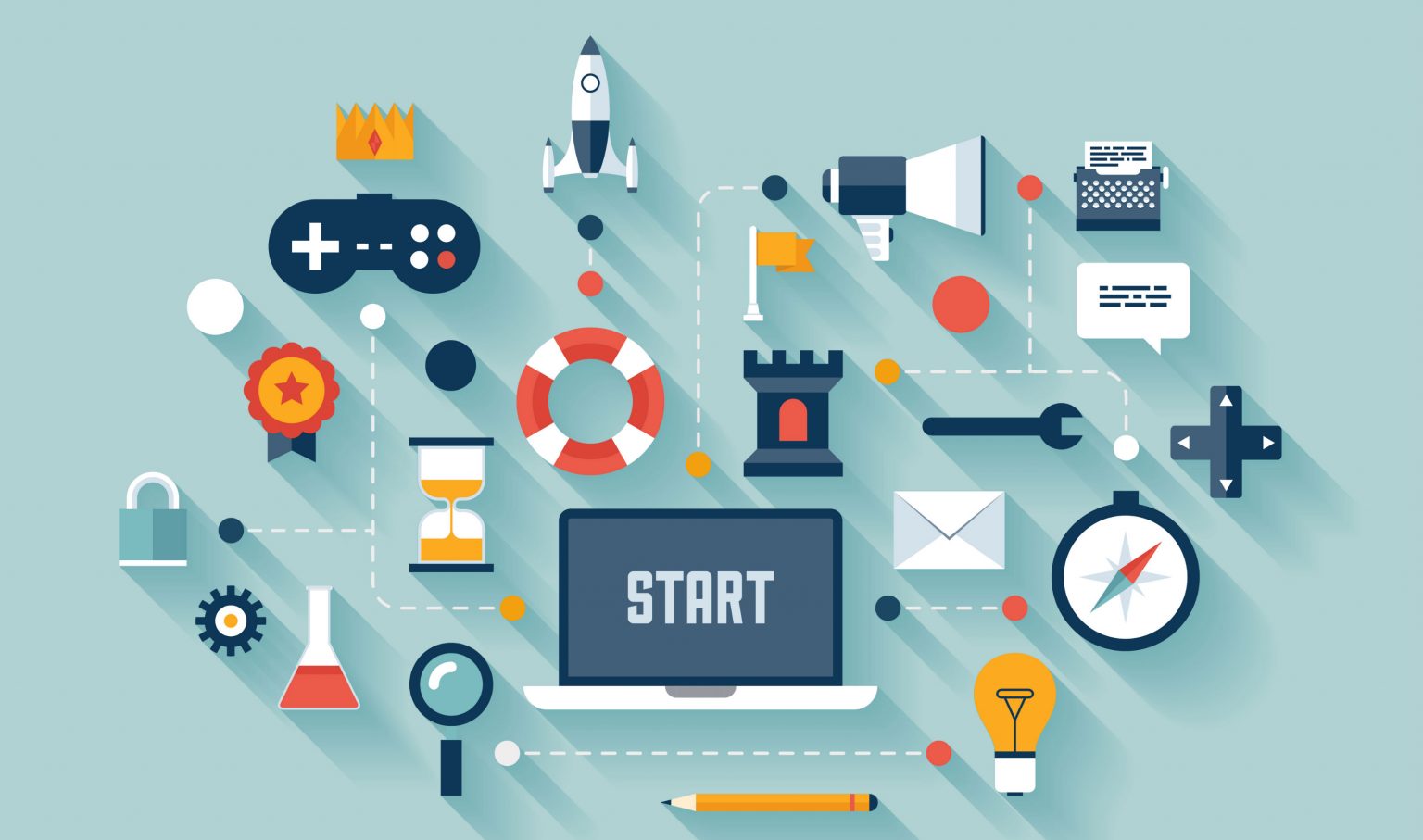Is Gamification the Missing Link in Business Process Management?

Business professionals want technologists to engage in a language they understand… so how about gaming?
In the 1980’s it was Workflow, the 90’s Content Management, the noughties Service Orientated Architecture (SOA) and more recently in the Tenties Business Process Management (BPM).
As we have progressed down years, one of the major barriers to adoption has been the battle between technology and differing objectives of the business, as if they both speak a different language.
SOA was supposed to bridge that gap by defining IT in terms of service. Still with a wide range of technical concepts and tools with great names such as Business Process Execution Language (BPEL), Business Activity Monitoring (BAM), Service Bus and WebLogic have failed to connect with the business community.
This was all to change with Business Process Management by delivering business improvement on the back of flexible technology that allowed nimble processes to be implemented and delivered. Providing a flexibility that can be changed easily to meet with changing business demands. However, due to the technical nature of the conversations the business was left on the periphery or not integrated fully into the decision making process. The required change to the business structure and operations was driven by IT and the Technology was still speaking a different language.
What is Gamification?
This may be about to change as there is a new concept of engagement that is linked to Service related technology and BPM, but it is driven by a language that we can all relate to and understand.
Gamification is all about behaviour change by using gaming mechanics, game play and structures to create a desired outcome. By using a gaming format within a business process organisations can leverage the power of games to motivate staff and define a result that is of business benefit.
For example, in sales order processing there is a set routine that is followed to take an order from start to finish with touch points required along the way. This can be a laborious and time consuming process, staff turnover rates can be high and errors lead to delayed payments and money not arriving in the bank on time creating cash flow issues.
Gamification is a Process
How can Gamification improve this business process? Well, you can use Gamification in the following way:
There is a range of reward mechanisms and tools that are used by game designers such a:
- Hyperbolic Discounting
- Variable Reward Incentives
- Cognitive Flow
- Bartle Character Types Recognition and Reward Systems
These are all motivational states that helps to deliver change in behaviour. In gaming, it is a powerful way of creating positive behaviours and delivering change.
Business Process Improvement and Gamification
We can use Business Process metrics to define what behaviour needs to change and then create a game structure to deliver the required changes.
For example in Sales Order Processing a key metric may be accurate processing with speed of processing i.e. Quality and Quantity. What we can then do is apply reward mechanisms to deliver behaviour that creates both Quantity and Quality behaviour.
This may be a points system where employees are rewarded based upon the number of orders processed with then additional rewards for perfection. These rewards need to vary.
Rewards and Character Types
Within game design, there has been a lot of research on different aspects of Gaming including how users can be engaged and how they can be motivated. It has been found that there are four character types of gamers (Richard Bartle Definition) and these can be used to engage and benefit the gaming interaction and therefore the gamified business process.
Bartle Character types were created by Professor Richard Bartle who studied game players and found that a distinct set of character types could be defined each wanted to interact with games and environment in a set way.
By identifying with these character sets enables a fuller engagement as you will be speaking a similar language.
Killers for example are disrupters and challenge conventional approaches to the Status Quo and like to destroy or upset things. Whereas socialisers prefer working in teams and building relationships.
Both these character types will exist within your organisation and will exist within your Business Processes and customer base, so why not harness these characters and engage a behaviour which benefits the process you have defined.
In terms of rewarding behaviour these character types and interaction can be used as a motivational approach by catering to character types own way of interacting.
Achievers Want Recognition
Achievers for example love rewards want to be top of the points tables, collect all the badges and show the world how good they are. This can easily be used in Game mechanics and game play and linked in to business process improvement programs but is not for everyone.
Business Process and Gamification in Summary
In summary, organisations can look to Gamification to improve Business Process and motivate both their staff and customers. Interactive Processes can have a significant positive effect and engage on an individual basis by speaking their own language and engaging at their level.
By implementing technical architectures that support flexible business processes the business can work towards higher level methods of engagement. Gamification of Business Processes and how these processes can be improved in a meaningful and positive way will help meet current and future business drivers.
It will be interesting to experience a world where both technologists and Business People speak in a unified language why not through Gaming and Gamification.
Latest jobs
IT Risk & Controls Lead
 London, United Kingdom
London, United Kingdom
 £55k - 63k per year
£55k - 63k per year
IT Risk & Controls LeadLondon – Hybrid (2 DPM in office)Up to £63,000VIQU have partnered with a leading organisation who are seeking an IT Risk & Controls Lead to join their IT risk management team.The...
Site Supervisor
 Stone, United Kingdom
Stone, United Kingdom
 Market Related
Market Related
Job Title: Site Supervisor Location: Stone (on-site)- must have full UK Driving License. Salary: market- relatedVIQU has partnered with a top engineering company seeking a Site Supervisor to create and manage project plans. The...
Installation Co-Ordinator
 Winchester, United Kingdom
Winchester, United Kingdom
 £250 - 350 per day
£250 - 350 per day
Installation Co-Ordinator – 3-month contract – Hampshire My customer is looking for a proactive and organised Installations Co-Ordinator to manage and support the installation of IT products and services across their trade and supply locations....
Network and Security Specialist
 London, United Kingdom
London, United Kingdom
 Market related
Market related
Network and Security SpecialistLondon – Hybrid (4 days weekly in office)Competitive Salary + Car allowanceVIQU have partnered with a prestigious Fortune 500 company that is looking to hire a Network and Security Specialist. The Network...
Financial Accountant
 Stone, United Kingdom
Stone, United Kingdom
 Market related
Market related
Financial AccountantStone - HybridCompetitive SalaryVIQU have partnered with a leading entity in operational technology and digital transformation. Operating in highly regulated and demanding industrial sectors, they have successfully executed pivotal projects across energy, nuclear, renewables,...

